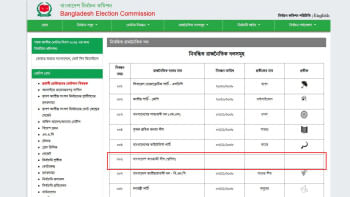Building on what has worked

Bringing together hydrogen and oxygen creates water, a molecule with properties completely different from hydrogen or oxygen alone. The same can be said for what has happened in Bangladesh regarding mobile financial services ("MFS"). MFS providers such as bKash have bound the power of banking and the immediacy of telecommunications to create a brand new molecule – one with properties completely different from either banking or telecommunications. This new hybrid is making Bangladesh a world leader in bringing mobile financial services to the poor. And the central bank, namely, Bangladesh Bank ("BB") has played a key role in allowing this new chemistry to flourish.
Let me explain my enthusiasm. I have long studied financial services for "the man on the street" and am a practitioner in this area as well. I have worked with banks, telcos, credit unions, pension organisations and NGOs in dozens of countries. In the past five years, I have focused on supervision and regulation of these services, and the formation of public policy with respect to these services. I also organise the annual conference called Killing Cash at Fletcher that brings together MFS players from around the world and promotes discussions on relevant issues.
I am excited to see that BB, which had started to promote financial inclusivity and mobile financial services through its regulation of 2011, is now advancing MFS regulation further in 2015. Now, 25 million people in the country use MFS, executing about 100 million transactions per month. The central bank has taken several prudent steps in the last five years.
First, BB learned from Kenya's stunning M-PESA success and the role that financial regulation played in that success. Second, the bank studied the Bangladesh economy. Third, from those steps, BB developed basic rules for MFS, gave licenses to operate MFS to several banks, and barred mobile network operators (MNOs) from getting into this line of business. Kenya unfortunately, did not do this, and the near monopoly of one mobile operator gave it an instant monopoly in mobile money, discouraging even the most determined competitors. The result has been that users do not have choice and cannot easily, or without great cost, send or receive money to users on a different platform.
By barring MNOs from starting their own MFS, BB effectively promoted interoperability. This encouraged 25 million subscribers to sign up in four short years. bKash, for example, had signed up three times as many customers (19 million) in four years as EasyPaisa operating in Pakistan for about seven years. Interoperability is key in Bangladesh because the largest MNO has no more than 42 percent of the market share. Without being able to easily send money across provider platforms, users would be stuck managing services over a fragmented base of platforms.
Besides interoperability, another reason to regulate and limit direct mobile money services from MNOs is their cost advantage. For example, bKash forwards 7 percent of its transaction revenues to the MNOs for connectivity. Were the MNOs able to compete directly, they would outcompete on price or on shifting more funds to agents. Either way, a sloped playing field would undermine a fair match, and ultimately affect consumer choice or interoperability or both.
There is another important reason why MNOs should not have any capability to direct an MFS provider, other than, at best, being a passive minority investor. MFS services have two streams of revenues, from transactions and small banking products. An MNO directing an MFS may tilt towards one type over another, contrary to market needs. Moreover, if an MNO does provide small banking products or has the ability to direct an MFS provider, it needs to be regulated by BB, creating potential conflicts with telecom regulators inside Bangladesh.
Furthermore, on the ability to trace flow of funds, law enforcers in Bangladesh can now go to an MFS provider and an MNO to corroborate the data. There is greater transparency if a separate standalone corporation provides MFS and pools data from multiple sources.
Many of us have been biased towards the so-called MNO-led model since our first observation of successful mobile money, Kenya's M-PESA, used an MNO-owned approach. This created problems vis-à-vis interest incomes, problems that were subsequently resolved by creating a foundation, called the M-PESA Foundation, and by parking the interest incomes there. In other words, even if MFS requires mobile phones, it is not a natural business for MNOs. I am now impressed by what Bangladesh has achieved and see the prudence in facilitating MFS directly by banks and separately as standalone entities, like bKash, while keeping MNOs at bay.
To assure that no single party dominates and that the consumer has choice without sacrificing use of an interoperable system, BB could simply require that no shareholder in an MFS provider should have more than a third of voting or economic interests in an MFS provider. Within that, an MNO does not need to own any more than a fifth of equity interest, for providing connectivity that it should provide anyway and for which it gets paid. But even in that case, regulators should ensure that an MNO is no more than a passive investor in an MFS provider; if an MNO is an active investor, it will hurt interoperability, may tilt one stream of revenues over another, lead to unfair competition, and create conflicts among different regulators in the same country. The hydrogen atoms must lose its elemental properties when already bound in the water molecule. By not allowing any shareholder to own more than a third would promote diversity of thoughts and expertise without excessive domination. While the new regulation clearly states that BB will directly supervise this entity, maintaining 51percent ownership by banks is overkill, especially when the MFS provider will not lend or take large deposits.
Through such thoughtful regulation, Bangladesh can claim an important landmark in the evolution of MFS, just as Kenya claims its own place. Only a few years ago, people turned to Kenya for the lead in MFS; now they can turn to Bangladesh.
The writer is Faculty, Fletcher School, Tufts University, [email protected]

 For all latest news, follow The Daily Star's Google News channel.
For all latest news, follow The Daily Star's Google News channel. 



Comments